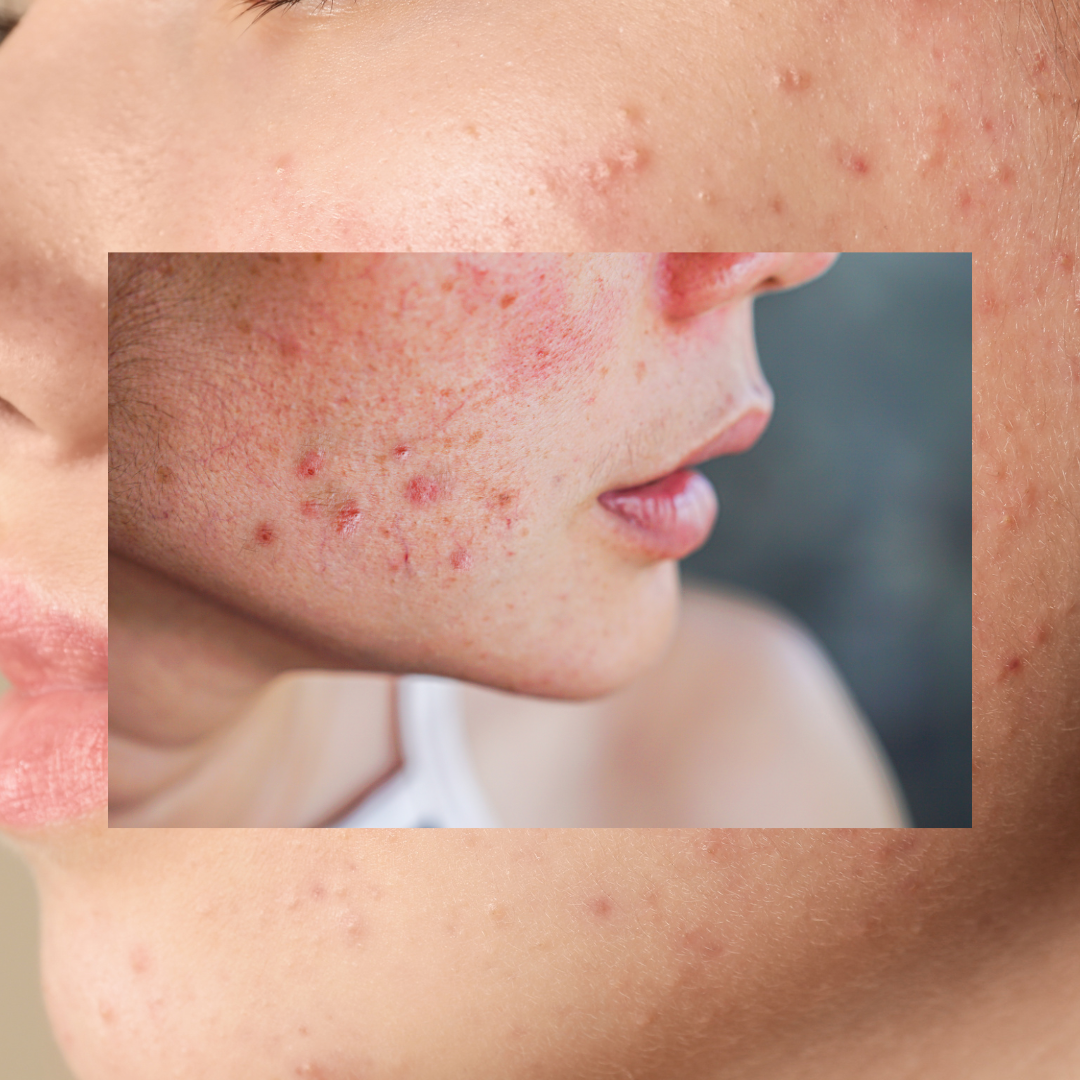
What Are Acne Grades? Understanding the Classification System
Acne grades are a standardised classification system used by dermatologists to categorise acne severity from Grade 1 (mild) to Grade 4 (severe). This acne grading system helps healthcare professionals decide the proper acne treatment options for each patient's specific condition.
The acne classification system considers several factors including the number of lesions, types of acne present, and the extent of skin involvement. Understanding your acne grade empowers you to seek proper treatment and manage expectations for acne healing timelines.
Grade 1 Acne: Mild Acne Symptoms and Characteristics
Grade 1 acne, also known as mild acne, is the most common form of acne affecting teenagers and adults. This mild acne grade is characterised by:
-
Comedones: Primarily blackheads and whiteheads.
-
Limited inflammation: Minimal redness and swelling.
-
Small lesion count: Fewer than 20 comedones total.
-
Localised areas: Usually confined to the T-zone (forehead, nose, chin).
Grade 1 acne treatment typically involves products containing salicylic acid such as Acne Gel Advanced Treatment, a targeted spot treatment. Many people successfully manage mild acne with consistent skincare routines and gentle cleansing products. We recommend Facial Wash Oily/Problem & Clearskin as your basic duo.
Mild acne symptoms rarely cause scarring and respond well to topical treatments. However, without proper care, Grade 1 acne can progress to more severe forms.
Grade 2 Acne: Moderate Acne with Inflammatory Lesions
Grade 2 acne represents moderate acne that includes both comedonal and inflammatory lesions. Key characteristics of moderate acne include:
-
Mixed lesion types: Blackheads, whiteheads, and papules.
-
Increased inflammation: More noticeable redness and mild swelling.
-
Higher lesion count: 20-100 comedones and up to 15 inflammatory lesions.
-
Broader distribution: May affect face, chest, and back.
Moderate acne treatment often requires professional care such as professional PCA Skin peels and a more targeted skin specific cleanser such as Blemish Control Bar, may take 6-12 weeks to show significant improvement. This is also when it can be best to start incorporating Intensive Clarity Treatment 0.5% Pure Retinol into your evening routine.
Grade 2 acne symptoms can cause mild scarring if left untreated, making early intervention important for optimal outcomes.
A daily care regime for Grades 1-2
Facial Wash Oily/Problem
Hydrating Toner
Acne Gel Advanced Treatment
Clearskin
Weightless SPF45
Grade 3 Acne: Moderately Severe Acne Classification
Grade 3 acne falls into the moderately severe acne category and represents a significant step up in severity. This acne grade features:
-
Inflammatory dominance: Numerous papules and pustules.
-
Nodule formation: Deeper, more painful lesions.
-
Extensive involvement: Multiple areas of face and body affected.
-
Increased scarring risk: Higher likelihood of permanent marks.
Grade 3 acne treatment typically requires medical intervention including:
- Oral antibiotics.
- Topical retinoids.
- Hormonal therapies for women.
- Professional extraction procedures.
Moderately severe acne symptoms can significantly impact quality of life and self-esteem. Professional dermatological care is essential for managing Grade 3 acne effectively.
Grade 4 Acne: Severe Acne and Cystic Acne
Grade 4 acne represents the most severe form of acne, often called severe cystic acne or nodulocystic acne. This severe acne grade is characterised by:
-
Large cystic lesions: Deep, painful nodules and cysts
-
Extensive scarring: High risk of permanent atrophic and hypertrophic scars.
-
Systemic involvement: Face, chest, back, and shoulders affected.
-
Psychological impact: Significant effects on mental health and social functioning.
Severe acne treatment requires intensive medical management, often including:
- Isotretinoin (Accutane)
- Oral corticosteroids
- Hormonal therapy
- Professional procedures: Cortisone injections, chemical peels
Grade 4 acne symptoms can cause permanent scarring and require long-term management strategies. Early intervention is crucial for preventing irreversible skin damage.
A daily care regime for Grades 3-4
Blemish Control Bar
Hydrating Toner
Vitamin B3 Brightening Serum
Intensive Clarity Treatment 0.5% Pure Retinol
Clearskin
Weightless SPF45
Acne Awareness Month: Why Understanding Acne Grades Matters
During Acne Awareness Month, it's important to recognise that acne affects over 85% of people between ages 12-24, with many adults continuing to experience breakouts into their 30s and beyond. Understanding acne grades helps:
- Improve treatment outcomes: Matching severity to appropriate therapies.
- Prevent scarring: Early intervention for higher grades.
- Reduce stigma: Education about acne as a medical condition.
- Support mental health: Acknowledging the psychological impact of acne.
When to See a Professional for Acne
Consider professional acne treatment if you experience:
- Grade 2 or higher acne: Moderate to severe symptoms
- Scarring formation: Any permanent marks developing
- Emotional distress: Acne affecting mental health
- Treatment failure: Over-the-counter products not working after 6-8 weeks
Acne Prevention and Management Tips
Regardless of your acne grade, these strategies can help manage symptoms:
- Gentle cleansing: Wash twice daily with mild, non-comedogenic products, Facial Wash Oily/Problem.
- Avoid picking: Resist touching or squeezing lesions, use a targeting spot treatment instead, such as Acne Gel Advanced Treatment.
- Sun protection: Use non-comedogenic sunscreen daily, Weightless Protection Broad Spectrum SPF45.
- Consistent routine: Maintain regular skincare habits.
- Professional guidance: Work with a local PCA Skin Professional for personalised care.
Taking Control of Your Acne Journey
Understanding acne grades 1-4 empowers you to make informed decisions about your skincare and treatment options. Whether you're dealing with mild comedonal acne or severe cystic lesions, appropriate treatment exists for every acne grade.
This Acne Awareness Month, remember that acne is a treatable medical condition, not a reflection of poor hygiene or otherwise. With proper classification, professional guidance, and consistent treatment, people with all grades of acne can achieve clearer, healthier skin.
If you're struggling with acne of any grade, don't hesitate to consult with a skin professional who can assess your specific condition and recommend the most effective treatment plan for your acne grade and lifestyle.
